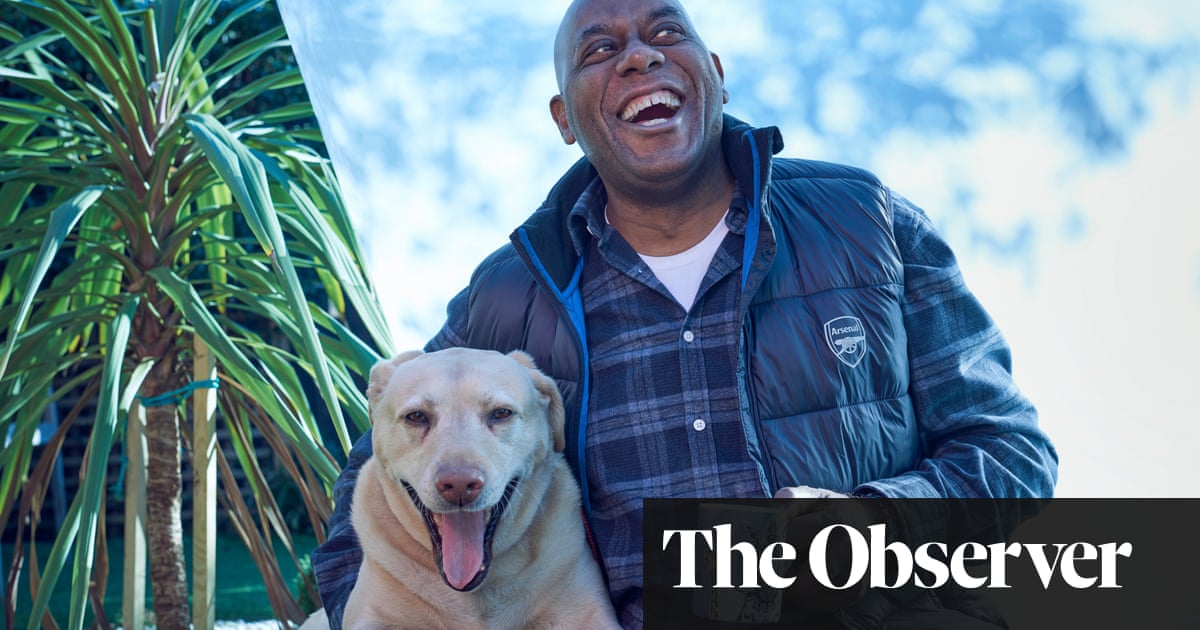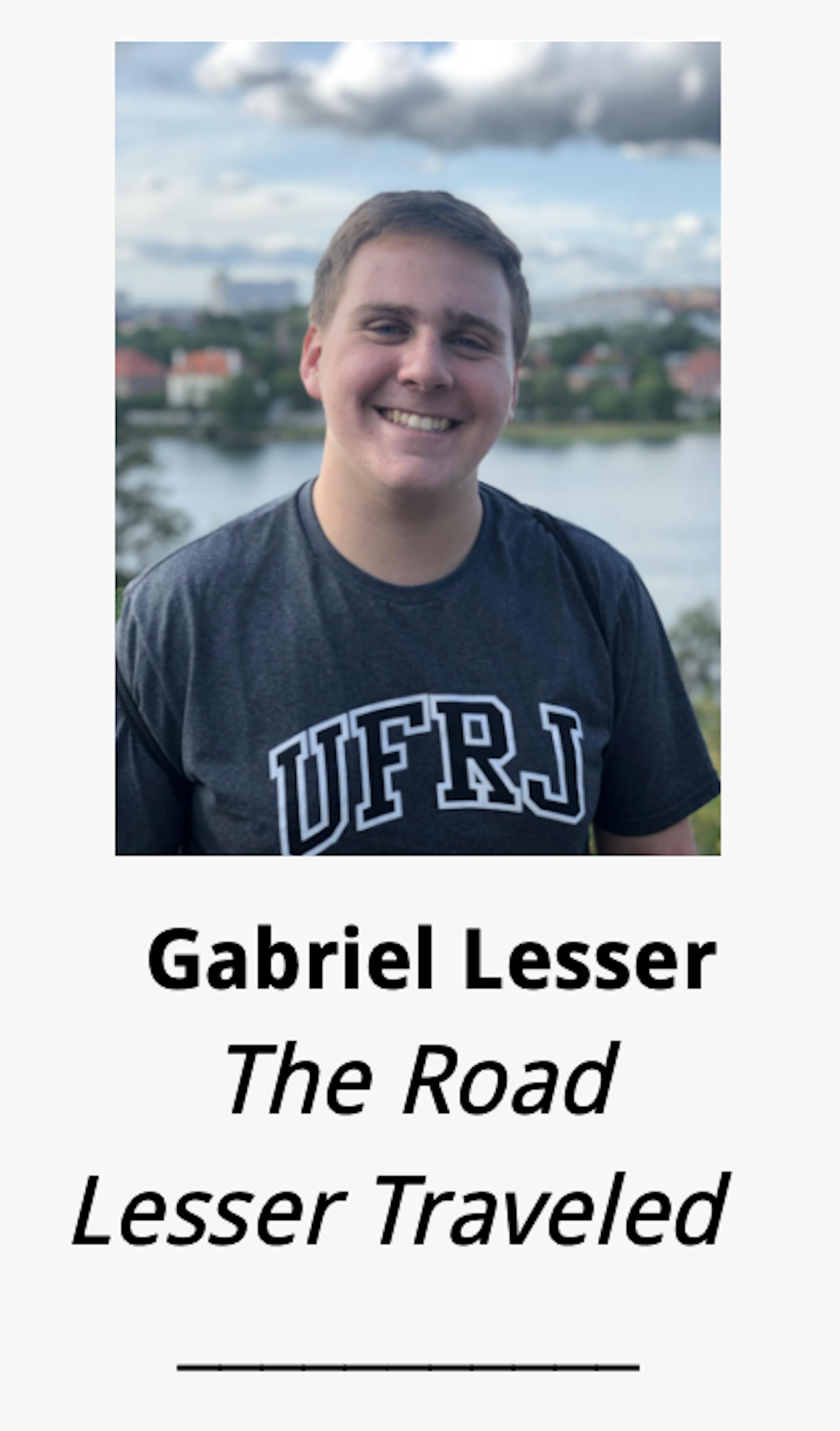Ainsley Harriott: 'My sister still takes control of my cooking at home' - The Guardian |
- Ainsley Harriott: 'My sister still takes control of my cooking at home' - The Guardian
- Not My Job: We Quiz NYT Cooking Expert Sam Sifton On Vending Machines - NPR
- Exploring my passion for cooking during quarantine - Johns Hopkins News-Letter
|
Ainsley Harriott: 'My sister still takes control of my cooking at home' - The Guardian Posted: 20 Mar 2021 09:00 AM PDT  I have a painting of an old lady stirring a pot on a fire in a West Indian kitchen, cooking with her children. It used to hang in my mum's kitchen and now I've got it in mine. It's lovely and tells of yesteryear. My father was an entertainer and had lots of people in showbiz – like Des O'Connor – round in the front room. Mum used to make them snacks and nibbles and I'd watch the reactions of appreciation and hear the banter. Most important of all is being able to convey enthusiasm on screen and I've always been a glass half full rather than half empty guy. Because of my energy, people tell me, "Oh, you're so up, Ainsley." When I was on Ready Steady Cook especially – they'd say: "Oh, he must be on drugs, you know?" When I phone my brother, to this day he still preaches to me about how to cook. "What you must realise, Ainsley," he begins. As the youngest in the family, I just reply "yeah, yeah" and think: "Well, I haven't done too badly as a professional cook." I made something quite Caribbean-y on stage at the Commonwealth Institute many years ago, and my mother was in the audience and called out: "Don't forget to turn down the heat, Ainsley!" Then my sister shouted: "And don't forget to do the onions." My sister, when she comes over, will say: "I saw your programme the other day and you did OK." But that's it for the praise. I take it on the chin. She'll stir things I'm cooking at home and take control. Back in the day, Ronnie Fraser's stall in Northcote Market [in Battersea] was the place for fruit and veg. He liked my mum and she always gave him a little pressie at Christmas – maybe socks or handkerchiefs. And I remember him pulling out a machete and chopping the rotten bits off big yellow or white yams, saying, "How about that, then?" and wrapping them with Mum's mangoes and avocados. He sold them when others didn't. He had cassava there, green bananas, plenty of sweet potatoes. And he was a lovely – a lovely, lovely – man. I had Greek neighbours and my friend's father, who worked at Battersea power station taught me how to play tavli (backgammon). We'd sit out there for hours drinking coffee, eating nuts and playing tavli. The mātēr and daughters fed and taught me all kinds of dishes. I was eating lots of things from an early age. Mr and Mrs Cluck, who lived three doors down, would make Polish food and bring it round to our house and we'd reciprocate with fried calypso chicken. I spent an entire summer in France as a teenager, when I was still in school. I went with my friend Charles – who didn't want to go alone – and we stayed with a pen pal of his with a constantly barking dog and a Gauloise-smoking, police-inspector father who drank Ricard first thing in the morning. Charles was off in the hills all day with a girl. I spent a lot of time shopping for food and cooking with her mother. Aged 17, I had a passion. I said I wanted to go into the kitchen and my housemaster replied: "You're much too bright for that, Harriott." What an insult. But I went around hotels and they felt like factories. Then I went to a small fancy classic French restaurant at the top end of Regent Street [Verrey's]. I got there just after lunchtime service finished and the chefs were sat down with beautiful chipped cups – used by staff – and big silver pots of coffee and milk. They said: "You're not here to get slaughtered, are you? You should go somewhere else." I thought: "No way. This is it." I had to go to Westminster Catering College to do my City & Guilds on day-release. I worked really hard but absolutely loved it. I mixed salt and vinegar to shine up the copper pots, made flour finer with a three-blade parsley chopper – which was their joke on me – and started off cooking button onions. The chef used to say: "When customers come into the restaurant, you ought to be able to cook anything. The menu's only a guide." So I had a classic Escoffier training and at the end of the week, a white tablecloth would be pinned up, a projector brought in and we'd watch dirty films on the wall. It was very exciting. After two and a half years at the Palace hotel – as chef de partie – I drove across America with an old mate and spent my day at Sausalito in a very funky part of San Francisco, or drinking beer, smoking silly stuff and having fun. When I returned to London I became sous chef at the Westbury. I was chef of The Long Room at Lord's cricket ground, and a radio producer rang up and asked if I'd host a cookery show. It was she who taught me how to talk about what was happening – "When you see that smokey swirl starting, you want to add a bit of colour in"; "You score the outside of that wonderful golden edge, releasing the sugar …" – that sort of thing. I've never got rude letters or ones written in strange coloured ink. Maybe Joan or Sarah in the office have read them first and not sent them on. But I've had lots of lovely people saying "You make me smile" and "You are a wonderful inspiration". One couple said, "You are the son we never had." I went through a stage of going out and buying or reading any cookbook I saw. I used to go to Books For Cooks in Notting Hill Gate and sit down with a few nibbles and look at the history of food. That was lovely. For a few years I was the face of Fairy Liquid. All kitchens involve washing-up. There were lots of exotic locations and it allowed me to pay for my children's education, until the advertising agency decided to use a hard-nut fairy in leather on a motorbike. I sometimes call my dog "Basmati Bob", because he likes his rice. Some people say you should just give your dog the same biscuit every day, but that would be boring, surely? I go to the fishmonger in Northcote Road and ask, "Have you anything for the dog?" and I go home with salmon, haddock, whatever trimmings, and poach it up to serve with his rice. Ainsley's Mediterranean Cookbook is published by Ebury (£20). Ainsley's Food We Love begins on 10 April on ITV and Ainsley's Mediterranean Cookbook is on ITV weekly from 20 April My favourite thingsFood Drink Place to eat Takeaway |
|
Not My Job: We Quiz NYT Cooking Expert Sam Sifton On Vending Machines - NPR Posted: 20 Mar 2021 07:54 AM PDT  Neilson Barnard/Getty Images for The New York Times
 Neilson Barnard/Getty Images for The New York Times Sam Sifton is the founding editor of New York Times Cooking, and author of the No-Recipe Recipes cookbook. We've invited him to play a game called "I don't need a recipe, I've got $1.50 in change." Three questions about the opposite of home cooking: vending machines. Click the audio link above to find out how he does. |
|
Exploring my passion for cooking during quarantine - Johns Hopkins News-Letter Posted: 20 Mar 2021 09:00 AM PDT  I've never considered myself much of a chef. Growing up, I only knew how to prepare the basics. From making Bisquick pancakes with my dad on Sunday mornings to rolling Brazilian brigadeiro chocolates with my mom in the middle of the night, I learned to cherish the time I spent cooking with my family, even if we were making the simplest of items. My family has exposed me to a blend of Brazilian, American and Jewish cuisines, and I am always actively exploring new dishes and trying all the food that new places have to offer. Over the summer of 2017, I started @foodworldeats, an Instagram account where I began collecting photos and documenting the foods I ate along my travels. From foot-long pizzas to Belgian waffles and extravagant milkshakes, @foodworldeats has been a great outlet for me to showcase my passions for food, photography and travel. While it has been great to publicize all of the amazing food from these "foodie adventures," it became particularly challenging to continue the account when the pandemic hit last March. I remember standing in Whole Foods roughly a year ago, panicking and needing to catch my breath amid the supermarket frenzy. I remember staring at the empty shelves with no meat or eggs, watching customers shove their way for the last box of pasta and seeing piles of carts in ravaged aisles. It felt like a scene straight out of the science fiction novel Life As We Knew It. I went home that day with very few items, but one of them was instant coffee so that I could participate in the popularized "whipped coffee" trend. When I got to my kitchen, I pulled out a whisk and mixed the instant coffee with sugar and hot water for 20 minutes until it reached a fluffy consistency, and then I poured the dalgona coffee over milk and served it; while I didn't know it at the time, this simple recipe would be my first of many quarantine cooking and baking endeavors. From that moment on, I became excited every time I heard about a new recipe, and I constantly pushed myself out of my comfort zone with new ingredients and techniques. In terms of cooking, I began exploring a variety of pasta dishes: spaghetti carbonara, fusilli alfredo and penne vodka — the latter being a vivid whirlwind of a memory because I almost burnt down my kitchen from the vodka flames. From the ups and downs of my adventures, I quickly learned that cooking takes a lot of discipline, patience and precision. I also began baking, learning how to mix wet ingredients with dry ingredients, and in no time, I was preparing easy classics like banana bread but also making more complex items like cinnamon crumb coffee cake, flourless peanut-butter muffins and my all-time favorite: Levain-Bakery-style chocolate chip cookies. As we approached the summer, I saw myself making countless cakes for my family members' birthdays. While my capabilities were initially limited to making a simple one-layer vanilla cake, by the end of the summer, I was mounting a three-layer chocolate buttermilk cake with Oreo buttercream frosting. I soon realized that, as long as I give myself the time and patience to grow and learn, I am able to achieve anything I set my mind to. When Hopkins announced that we would be online in the fall, my positive attitude began to falter. Nevertheless, on a phone call with my grandma, she said to me, "At least you'll have plenty of opportunities to cook now." And she wasn't wrong. Throughout the fall, I found myself cooking during many of my study breaks; whether it was sesame chicken, cinnamon rolls and even potato latkes during finals week for Hanukkah, cooking gave me a way to release all of the stress from online classes in a practical and productive manner. It also provided me with new opportunities to meet people over Zoom and exchange recipes. Through the Hopkins Hillel community, I learned an amazing challah recipe, which I began baking on a weekly basis for Shabbat, and because I loved it so much, I even began to distribute my challahs to my friends and family. As I reflect on all of these memories from the past year of cooking and baking, I think about how different my life would have been if there had never been this pandemic. I would have graduated high school and started college normally, I would have in-person classes rather than Zoom classes and I would be able to eat out at restaurants and see friends and family in a normal manner. However, I would not have spent this much time in the kitchen, I would not have developed my current cooking and baking skills and I probably wouldn't even be writing this right now. Cooking has given me a new outlet to express my creativity, it has provided me with a greater appreciation for the preparation of food and it has given me the opportunity to display homemade content on @foodworldeats. My point is, we cannot control what happens in the world; we can only control how we react and respond. We could choose to sit around and wallow in a puddle of our own frustrations, or we can take action and make something beautiful out of the unexpected. Cooking connects us with our loved ones, whether it's a smile across the kitchen counter, a photo they send of their most recent creations or the recipes they leave behind. From my aunt's delicious brisket recipe at our Thanksgiving table in Long Island to my great-grandmother's passed-down salad recipe at my grandparents' apartment in Rio de Janeiro, I have learned that food transcends any given location and time. Cooking and eating meals are ultimately about the people we spend our time with. Food is about love, and that's all that matters. Gabriel Lesser is a freshman from Westchester, N.Y. studying Neuroscience and Romance Languages. His column explores his memories along with his current reflections and the lessons that he has learned. |
| You are subscribed to email updates from "cooking" - Google News. To stop receiving these emails, you may unsubscribe now. |
Email delivery powered by Google |
| Google, 1600 Amphitheatre Parkway, Mountain View, CA 94043, United States | |
from What to Cook https://ift.tt/3r2rhSR

